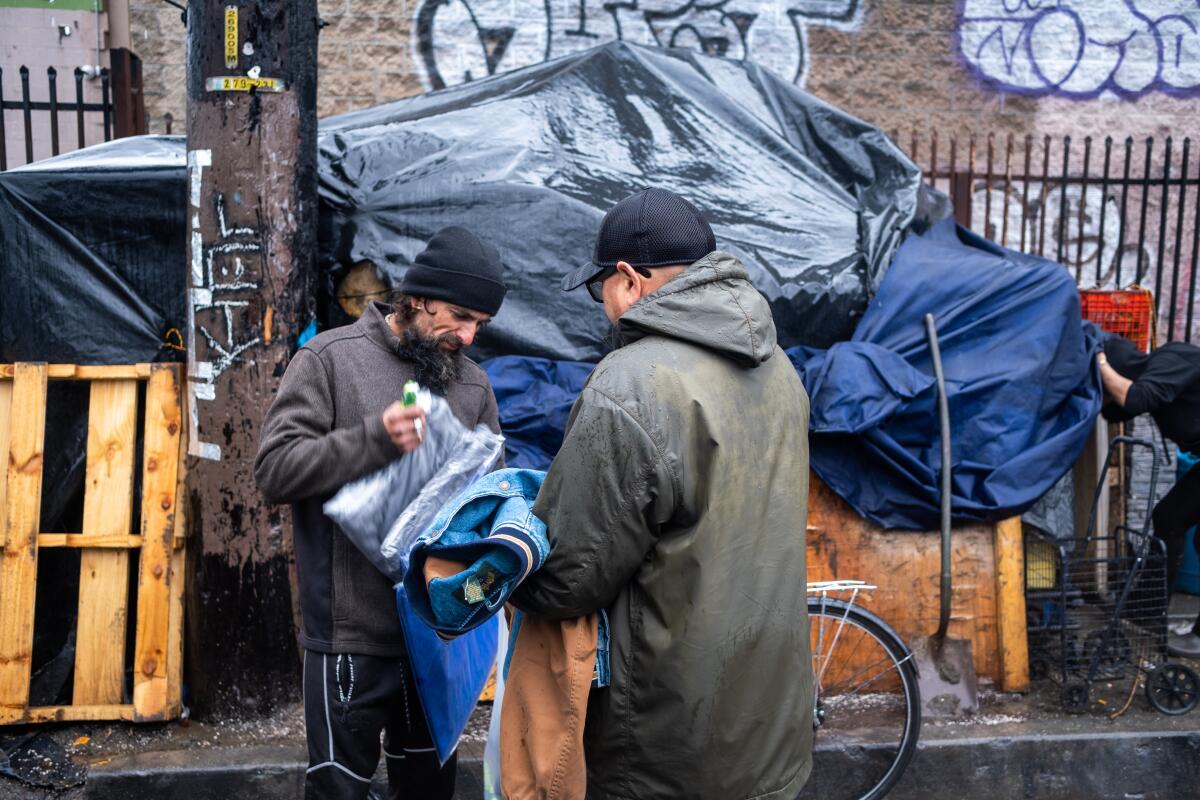Letters to the Editor: We’re tackling the homelessness crisis in the wrong ways

- Share via
To the editor: With regard to the Grants Pass decision by the Supreme Court, no one wants to see homeless people arrested for sleeping on public property. That said, the spread of homeless encampments in California is an unsustainable travesty. These mass encampments affect everyone. People are afraid to walk down the street. Cities need to have the power to control what goes on within their boundaries. This issue is being addressed from the wrong end.
If people are camping on public property due to mental illness or addiction, then they should be taken to a place where they can receive treatment. Housing that is supervised by mental health professionals with addiction services is a good investment.
Nathan Post, Santa Barbara
..
To the editor: Who are you kidding? If the numbers are correct, the 2.2% drop noted from 2023 to 2024 amounted to exactly 1,008 fewer unhoused individuals, leaving 45,252 living on Los Angeles City streets — not to mention the tens of thousands in the rest of Los Angeles County. At this rate it will take more than 45 years to provide our unhoused residents, and our affected communities, with relief.
It’s time for our advocates and government officials to take more practical and multifaceted strategies and not rely so much on the very slow process of building more, costly, permanent affordable housing.
Los Angeles needs smarter strategies for preventing and ending homelessness. We need to acknowledge how much of the unhoused population has serious health, mental health and substance abuse conditions that prevent them from holding employment or caring for themselves independently. Housing alone is not a realistic strategy to serve this population successfully. Many will need lifelong treatment and supportive housing to maintain stability.
We need to bring compassion for both the unhoused population and the impacted communities together with public health expertise to adopt more realistic strategies.
Mary M. Emmons, Los Angeles





